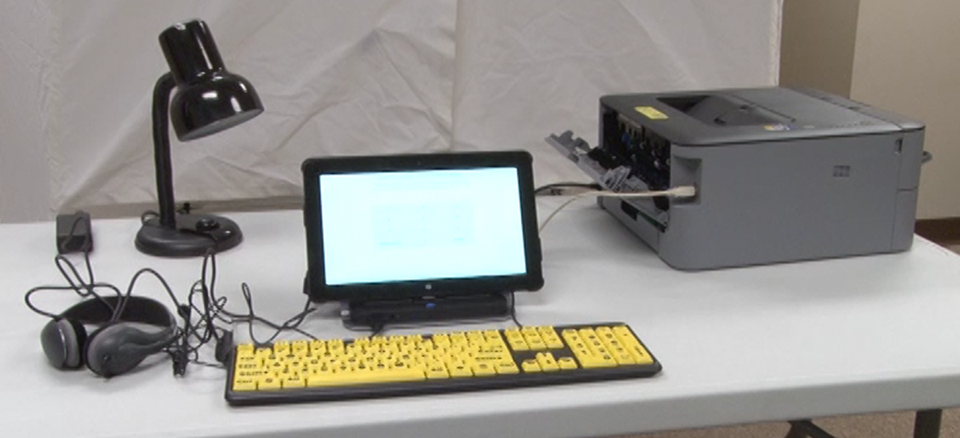This article was originally published as “This Voting Invention Would Help Jurisdictions Significantly Reduce Their Costs” at Forbes.com.
Some inventions nearly pull themselves to market. Others require persistence, ingenuity, and significant funding to push themselves forward. In my experience as a lifelong entrepreneur, several factors separate the former from the latter. Some inventions are simply before their time. When an invention cannot be explained concisely to a non-expert, difficulties arise. And finally, there’s industry itself. Just how competitive is it? Industries that are dominated by a few major players are rarely innovative, because they don’t have to be — they can rest on their laurels.
Fortunately, renowned computer scientist Dr. Juan E. Gilbert — chair of the Department of Computer & Information Science & Engineering at the University of Florida — isn’t one to shy away from a challenge. He is the inventor of Prime III, the only open source voting system that has been used in state, federal and local elections in the United States to date. Other open source voting systems exist. What makes Dr. Gilbert’s unique is that anyone, including those with disabilities, can use it.
“Those who cannot see, hear, read — as well as those who may have other physical disabilities, such as missing limbs — can vote using the same system as everyone else,” he explained in a phone interview.
Dr. Gilbert and his team developed the first version of Prime III at Auburn University in 2003, the year after Congress passed the Help America Votes Act. In addition to providing $3 billion to the states to purchase new voting equipment after the ‘hanging chad’ fiasco of the 2000 presidential election, HAVA stipulated that each polling place have at least one voting machine that could be used independently by people with disabilities.
To Dr. Gilbert, this stipulation, though well intentioned, would result in a separate but equal situation. When he learned about the weaknesses of existing electronic voting systems, he was inspired to create a more secure and accessible technology. In 2011 the Election Assistance Commission awarded him $4.5 million dollars to continue developing and testing Prime III.
Today, Prime III works through a web browser, such as Chrome, and the use of a headset and a microphone. Voters can cast their ballot using touch, voice or both. In 2015, New Hampshire adopted Prime III and renamed it One4All. The One4All system was used in 2016 primaries as well as the presidential election. In Ohio during the mid-term election earlier this month, it was adopted for absentee voting.
Early on, when Dr. Gilbert began approaching politicians about Prime III, their first questions were always the same: Who owns it? Making his invention open source — meaning the public could take ownership of it — alleviated such inquiries. His decision not to file intellectual property was intentional, he said.
A huge benefit of the open source model is cost savings. In the National Academies of Sciences, Engineering, and Medicine report Securing the Vote: Protecting American Democracy released this fall, lack of sustained funding is identified as one of the most significant challenges facing jurisdictions. Just three companies — Dominion, ES&S and Hart InterCivic — are responsible for more than 80% of the voting machines currently in use. Their software is proprietary, and typically bundled with the purchase of hardware and maintenance services.
On the other hand, Prime III was made available to New Hampshire for free. Over the next 12 years, the state estimates it will save nearly $4 million by using its One4All system to fulfill the HAVA accessibility requirement. The state of Ohio paid a one-time initial licensing fee, now the system is theirs.

So, why haven’t more counties and states adopted Prime III yet?
“Some vendors in the marketplace see me as competition,” Dr. Gilbert admitted. “[But] I’m not a vendor. I’m not selling this. This is not my business. I created a solution to a problem and want to license it.”
When he approaches jurisdictions about their voting systems, officials are often unsure of what to do with him, he told me — especially those not trained in science and computing. What he’s offering is not comparable. In fact, according to Dr. Gilbert, it’s the only type of software ever of its kind.
Working with the IT staff in New Hampshire was easy, he said, because they understood his invention and its value. “After a test, they ran with it. If a state doesn’t have a strong IT department, adopting an open source system becomes more challenging.”
Vulnerabilities in electronic voting systems are unsolved — not new. To experts, some are painfully obvious. It is unsurprising malfunctions were reported around the country during the election this month. Is this the new normal? It doesn’t have to be. Implementing Prime III would help jurisdictions conserve their resources in addition to providing equal access to the electorate.
I became aware of Dr. Gilbert’s remarkable invention because he is a fellow AAAS-Lemelson Invention Ambassador, a program that showcases the modern faces and voices of invention. So far, it’s been genuinely inspiring. These individuals are inventing for the betterment of society. They aren’t motivated by financial gain. There’s no political agenda.
For some, this may be difficult to accept. Personally, I can’t help but wonder what the world would look like if more problem-solvers were empowered to take on seemingly intractable challenges — and recognized for it.
